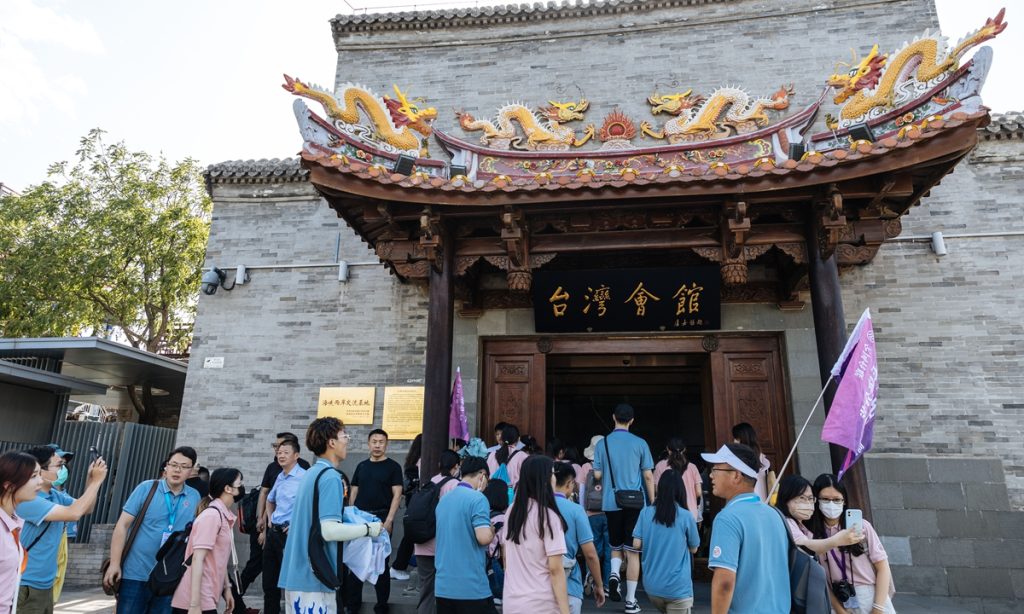New Taiwan school textbook faces backlash for removing large chunks of traditional Chinese literature

The new curriculum guidelines in China's Taiwan island have been met with huge controversy recently as a local high school teacher slammed the textbooks' removal of large chunks of traditional Chinese literature as "shameless." Her remarks not only gained wide support from student groups across the island but was also recognized by former regional leader Ma Ying-jeou.
Experts said on Tuesday that the "natural independence" among young people in Taiwan is actually a result of the "de-Sinicization" education they have been exposed to under the scheme of the Democratic Progressive Party (DPP) authorities. This politicization of education is fundamentally fragile and doomed to collapse because, regardless of the efforts made by the DPP, they cannot change the fact that their bloodline and cultural roots stem from China and will always be Chinese.
At a press conference on December 4, Ou Kui-chih, a Chinese literature teacher at Taipei First Girls' High School, blasted the current curriculum guidelines, introduced in 2019 as part of Taiwan's extension of its education program from nine to 12 years, as "shameless." Ou argued that students were no longer able to learn about important values, such as integrity and patriotism, from the classic writings of ancient literary masters, local media reported.
In an approximately 2,000-character statement, Ou criticized the education reform in Taiwan over the years, saying it has been guided by the ill principle of "de-Sinicization," leading schools, teachers and students into a dark educational abyss.
"While prestigious schools in Japan are asking students to learn Chinese literature and Koreans are claiming that Confucius is from their bloodline, we are ignorantly choosing to sever our cultural heritage," Ou said. "While the world has caught 'Chinese fever,' the Taiwan authorities are choosing to 'self-castrate' and let the whole generation be destroyed by ideology."
The video of Ou's speech soon went viral on social media in Taiwan, with many sharing the poem of Shame and Integrity written by philologist Gu Yanwu from the Qing Dynasty (1644-1911), which soon began trending on Facebook.
Local media reported that compared to the previous curriculum, the new one recommends 17 fewer traditional Chinese texts, meaning half of the original content has been deleted.
Former Taiwan regional leader Ma Ying-jeou on Friday said that he admired Ou for speaking out, while Kuomintang (KMT) Vice Chairman Sean Lien said that the DPP was using the guidelines to make Taiwan people "illiterate."
It has been pointed out by several local media outlets and Kuo Jeng-liang, a former Taiwan politician, that the current regional leader Tsai Ing-wen is "terrible and clumsy" at expressing herself in Chinese.
The core of the "de-Sinicization" movement in Taiwan is cultural secessionism, and the purpose is to serve political independence, Wang Jianmin, a senior cross-Straits expert at Minnan Normal University, told the Global Times on Tuesday.
While opposition voices for "de-Sinicization" have always been loud but were suppressed in the past, the high school teacher's speech rekindled public attention this time, as the problem was raised by someone in the education system, not driven by factional struggles but purely from the perspective of educational integrity and respect for history. This indicates that the DPP's educational reform has caused serious dissatisfaction within the system itself, experts noted.
Despite the controversy, however, the DPP will continue its efforts to de-Sinicize Taiwan and uphold its so-called Cultural Fundamental Act, which essentially aims to reconstruct a Taiwan-centric culture and deconstruct traditional Chinese culture, Wang said.
However, while the DPP tries to push forward its secessionist scheme, the fact will always remain that Taiwan compatriots are ultimately descendants of the Chinese nation, with Chinese cultural heritage ingrained in their genes.
The National Taiwan University initiated a poll on the matter in recent days, in which a total of 1,814 students participated, with 38 percent expressing support for Ou, saying that classical Chinese is an important part of Chinese language education.